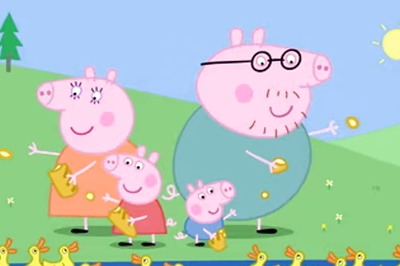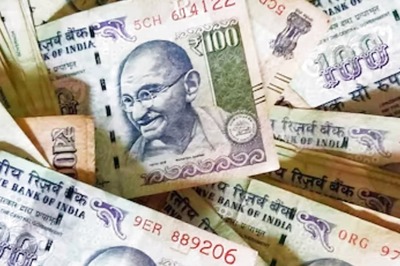
views
What does “Lowkey” mean as a slang term?
“Lowkey” is an adverb that means moderate or limited to an extent. In slang, “lowkey” can be an adverb or adjective. In adverb form (which is the much more recent version of the word), lowkey’s definition is “to some extent” or “of low intensity,” which just means doing something subtly, modestly, or to a lesser degree. Sometimes, “lowkey” can imply embarrassment or that you’re trying to keep something on the down-low. “I’ve been lowkey obsessed with this movie. I saw it in theaters three times!” “Don’t tell anyone, but I’m lowkey thinking about moving next year.” “Lowkey” is the inverse of “highkey,” a slang term for something super intense, obvious, or out in the open.
“Lowkey” is also an adjective meaning discreet, relaxed, or understated. It’s a slang descriptive term that can be applied to anything from people to events and activities. Describing something as lowkey means it’s quiet, restrained, moderate, or laid-back in some way. For example, you might describe a party as lowkey if you’re keeping the guest list small and not making a big deal about it! “We’re having a get-together at my place, but don’t worry—it’ll be super lowkey and casual.” “I try to keep things lowkey most of the time. I don’t need any drama in my life!”
How to Use “Lowkey”
Imply that something is happening moderately or modestly. As an adverb, “lowkey” means you’re doing something moderately, or it’s happening to a modest degree. That means you can use “lowkey” in place of words like “kinda” or “sort of,” whether you’re talking about a movie you just saw, something happening at work, or a crush you have! “I’m lowkey crushing on Luca. He’s surprisingly sweet!” “Work has been low-key stressing me out. I’ve got a handle on it, but I don’t need anything else happening!”
Confide in someone about a secret or guilty pleasure. You can also use the adverb form of “lowkey” to let someone know you’re trying to keep something a secret or you don’t want whatever you’re saying to be widely known (possibly because you find it embarrassing). It’s like saying, “I can’t believe I’m saying this, but…”. For example: “I know it’s not my usual vibe, but I’m lowkey really into country music lately.” “I’ve been lowkey annoyed with my sister. Should I talk to her about it?”
Describe an event or a person’s vibe. Since lowkey can also be an adjective, you can use it to describe something as relaxed, calm, casual, or simple (rather than dramatic or over-the-top). For example, a low-key date might be one where you stay home, cook dinner, and watch a movie—laid-back and stress-free. “You’ll like Kim; she’s super lowkey and friendly!” “I was thinking it’d be nice to have a low-key night at our favorite bar. You in?”
Compliment someone on their easygoing attitude. “Lowkey” (in its adjective form) can also be used as a compliment when you want to show appreciation for someone’s drama-free attitude or calm, laid-back approach to life. Someone who’s “lowkey” can be really easy to get along with and relaxing to be around—so make sure they know it! “You always keep things so lowkey! It’s so refreshing tbh.” “Thanks for keeping things so calm and lowkey yesterday. It really made me feel better!”
Origin of the Slang Term “Lowkey”
“Low-key” likely has roots in musical terms. Originally, “low-key” described something with a deeper or lower pitch from the early 1800s and onward. Then, in 1857, the reading primer Introductory Lessons in Reading and Elocution defined low-key as a tone of voice used when someone is speaking softly—and by the 1890s and early 1900s, low-key also referred to metaphorical restraint or quietness. Essentially, even though “low-key” first referred to music and vocal tones, its meaning expanded over time.
“Lowkey” was first used as slang in the 2000s. Though it’s been a descriptive adjective for decades, “lowkey” wasn’t used as an adverb until the late 2010s, when it became a slang term for doing something with moderation or more subtlety. Early Urban Dictionary entries from 2010 define “lowkey” as a synonym for “kinda” and note that it refers to things done secretly, discreetly or in a laid-back manner. “Lowkey” has grown in popularity since the late 2000s and has spread through use online, in text, and in pop culture (especially hip-hop music). For example, there’s a line in Chance the Rapper’s “U Got Me F****d Up” (released in 2012) that goes: “Coolin’ with Mikey, low-key I rock.”
Is “Lowkey” or “Low-key” correct?
Both spellings are correct when using the slang term. The original adjective “low-key” is usually spelled with a hyphen, but “lowkey” can be spelled either way as slang. So, don’t worry about getting it wrong; you can choose the spelling you like best or use “lowkey” and “low-key” interchangeably. They mean the same thing!
Other Slang Terms
Familiarize yourself with all the texting slang that’s widely used today. You have everything you need to master “lowkey” in everyday conversations and texting exchanges, but what about other slang terms? If you want to expand your slang vocabulary further, explore the following commonly used terms: Sus: Suspicious Goated: Something or someone that’s the greatest of all time I’m cooked: I’m in trouble W/: With (or “winning” without the slash) Rizz: Charisma or someone’s ability to flirt Delulu: Delusional behavior




















Comments
0 comment